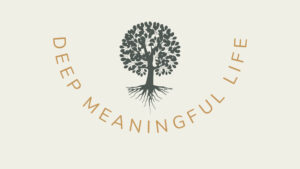Finding the Signal – 1 Timothy 4:7-8 & Matthew 11:28-29: Reflection Guide
Reflection Guide
Key Terms
Lowly (Matthew 11:29) – This word is only used here in the NT, but in wider Greek literature it has a negative connotation and speaks to the state of the poor or slaves. It’s significant and striking that Jesus, the Son of God, would use this word to describe himself.
Train (1 Timothy 4:7) – From the Greek word gymnazō meaning “to train” or “to undergo discipline,” and from which we get our English words gymnasium and gymnastics.
Godliness (1 Timothy 4:7 & 8) – From the Greek word eusebeia, which in wider Greek literature simply meant “respect” or “reverence.” Paul, however, always this word as a synonym for theosebeia, meaning “reverence for God.”
Did you know?
Jewish rabbis often spoke positively of the OT Law as a “yoke,” but it was one that consisted of many rules and was difficult to bear. Jesus’ invitation isn’t to throw off every yoke, but to substitute the yoke of law keeping with the yoke of Jesus himself, which he calls easy (Mt 11:30).
Background
In Matthew 11:28-29, Jesus invites all people who labor or are heavy ladened to come to him and receive rest. This invitation follows Jesus’ declaration that God is the Lord of heaven and earth (v. 25) and that Jesus is the divine Son of God (v. 27), which is important because those realities give Jesus the authority to invite people to himself in order to experience rest. The point isn’t that people who are tired from physical labor will get a break; the point is that those who are weary and burdened by life have access to deep refreshment in Jesus. The path to this rest, according to Jesus, is to take [his] yoke and learn from [him] (v. 29). These invitations show that the path to the rest Jesus offers is not simply to believe that Jesus is the Son of God who is qualified to offer such rest, but to actually learn a new way of life from Jesus. And in the rest of the gospels, Jesus teaches this new way of life.
In 1 Timothy 4:7-8, Paul picks up on this theme of learning a new way of life from Jesus and challenges Timothy to train himself for this life (v. 7). Paul says that physical training has some value, but spiritual training has infinite value because spiritual training results in the type of life Jesus is inviting people to both during this life now and in the resurrection life when Jesus returns. Taken together, Matthew 11:28-29 and 1 Timothy 4:7-8 freely hold out an invitation to deep, meaningful life in Jesus, while also challenging followers of Jesus to work hard to model their own lives after Jesus’ life and teaching.
Going Deeper
Read Psalm 119. What stands out to you about the way the Psalmist speaks about God’s Word? What do you notice about the connection between obedience to God’s Word and joy? What does the Psalmist say about consistently growing in both knowledge of God’s Word and obedience to it? How does Psalm 119 encourage you? How does it challenge you?
Reflection Questions
Learning the Word
- Read Matthew 11:28-29. What stands out to you from Jesus’ invitation and promise?
- What does it mean to learn from Jesus? Why is it important for us to observe the way Jesus lived not just what Jesus taught?
- Read 1 Timothy 4:7-8. What comes to mind when you think about physical training and exercise? Why do you think Paul chose this metaphor?
- What reason does Paul give for saying that training for godliness is more valuable than physical training?
Living the Word
- Are you currently feeling more weighed down by the burdens of the world or more at rest in Jesus? Why?
- What do you think it means to be a disciple of Jesus? How does this lesson confirm or challenge those ideas?
- What sorts of things create unnecessary “noise” in your life? How might you cut back on unnecessary noise?
- What sorts of things lead you into deeper rest in God? What are some spiritual disciplines you want to grow in or learn more about?

